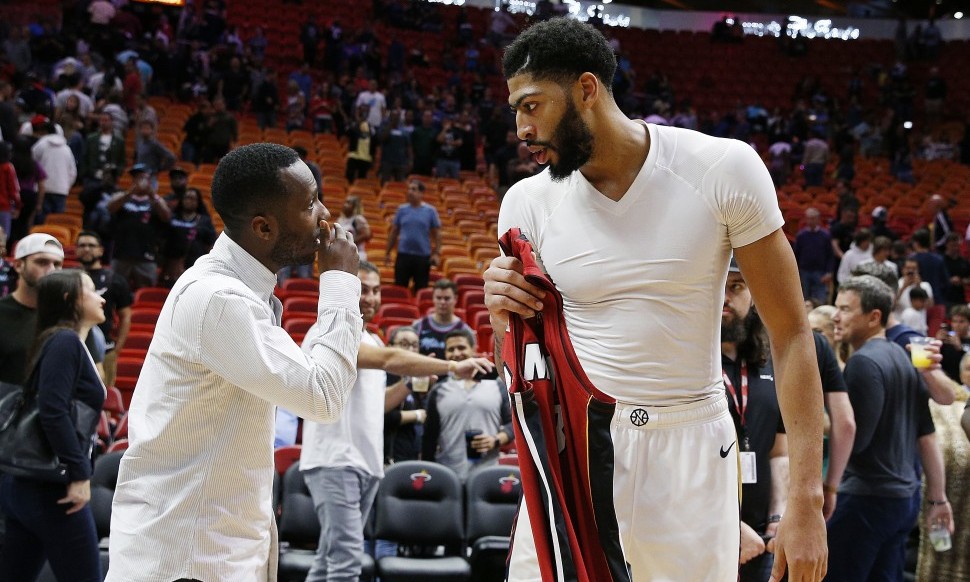
When the NCAA introduced new rules and requirements for agents looking to represent players declaring early for the NBA Draft, it was immediately dubbed the “Rich Paul Rule.”
The NCAA will now require agents to take a test, have three years of experience, and also have a bachelors degree before they can represent a player without that player losing their eligibility to return to school before the designated deadline to fully declare for the draft. The bachelors degree portion seemed to specifically target Paul, who famously rose to prominence in the industry after meeting LeBron James while selling throwback jerseys and climbed the ladder to start his own agency, Klutch Sports, which represents some of the NBA’s biggest names.
LeBron was very vocal about being upset with the NCAA’s new rule that seemed to be targeting his close friend and agent, and he wasn’t alone. Most everyone called out the new rules for being overly restrictive and a way for the NCAA and the established agenting world to prevent others from getting in the door by non-traditional means.
On Monday, Paul penned an op-ed for The Athletic in which he explained why the rule won’t actually effect him, but instead is meant to keep out others like him. He pointed to how this will keep those without the means to go to college from grinding and finding a way in, especially if it catches on at a higher level than just an NCAA rule.
The harmful consequences of this decision will ricochet onto others who are trying to break in. NCAA executives are once again preventing young people from less prestigious backgrounds, and often people of color, from working in the system they continue to control. In this case, the people being locked out are kids who aspire to be an agent and work in the NBA and do not have the resources, opportunity or desire to get a four-year degree.
It’s a point many have raised, as Klutch surely has people on staff with a degree to meet these requirements, but rather than target Rich Paul this is meant to slow the increase in agents from non-traditional backgrounds. Paul questions whether this is just the beginning and could lead to becoming the standard rule for being an agent in the NBA or across other sports.
Beyond that, Paul asks why there couldn’t have been a different method applied here to achieve the same goal. Rather than restrict access, Paul wonders why the NCAA isn’t working to help agents to give them avenues to take classes at their universities, have experienced agents help them, or accept work experience as a substitute.
There’s another practical reason that this rule doesn’t make sense. Respectfully, how do four years studying sports marketing in a classroom make you more qualified to represent a kid than working at Klutch Sports Group or for an NBA front office? Or at any other entrepreneurial business for that matter? All this will do is exclude the agents whose life experience helps them understand the needs of many of these players best.
The final point from Paul is an easy one to explain why the NCAA wouldn’t do that, because it would be admitting that work experience can be equal to or better than a college degree in preparing you for a successful, high level career — which colleges desperately want you to not believe is true. If you accept that you can work your way up without going to college (which, spoiler, you can), then that would devalue the necessity of a college degree and stop the flood of money pouring into universities from people likely better suited to joining the workforce and learning by plying their trade (whatever it may be) rather than spending four years in a classroom.
All of this is to say, the NCAA exists not to help student-athletes or anyone else, only themselves and their member universities. Offering alternatives to help agents trying to break in through non-traditional means isn’t something that does that and, as such, it wasn’t considered when creating this rule. Paul even says he agrees there should be an experience requirement and can even get down with a test, but requiring a bachelors degree is simply an unnecessary step meant to restrict access and nothing more.






